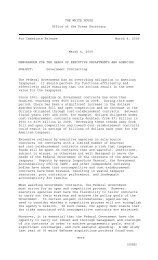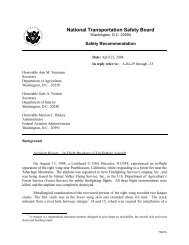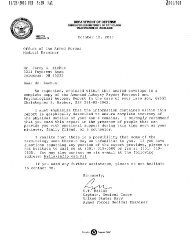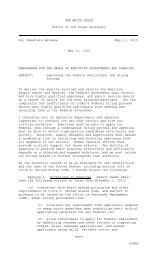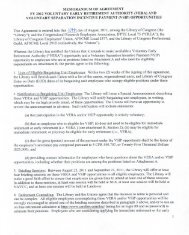Accenture's fifth annual global e-government study
Accenture's fifth annual global e-government study
Accenture's fifth annual global e-government study
Create successful ePaper yourself
Turn your PDF publications into a flip-book with our unique Google optimized e-Paper software.
Canada<br />
2004 Rank: 1<br />
2003 Rank: 1<br />
2002 Rank: 1<br />
Vision introduced: 1999<br />
Vision title:<br />
Government On-Line<br />
Vision summary:<br />
Our goal is to be known around the world as the<br />
<strong>government</strong> most connected to its citizens, with<br />
Canadians able to access all <strong>government</strong> information<br />
and services online at the time and place of<br />
their choosing.<br />
Regular Internet users (percent of population):<br />
63.41 percent<br />
Regular Internet users who have ever visited an<br />
eGovernment site: 79 percent<br />
Canada<br />
Canada’s eGovernment program continues to set<br />
the standard for the rest of the world. The country<br />
ranked number one for the fourth year in a row and,<br />
in fact, increased its lead over its closest challengers,<br />
Singapore and the United States. Canada was once<br />
again the leader across all categories of eGovernment<br />
maturity—service breadth, service depth and customer<br />
relationship management.<br />
Canada’s vision and eGovernment action plan<br />
essentially have not changed since first articulated.<br />
The <strong>government</strong>’s goal is to connect better with citizens<br />
and its strategy is twofold: to have the most<br />
commonly used services online by 2005, with a 10<br />
percent increase in citizen satisfaction by 2005.<br />
Looking at Canada’s performance over the past few<br />
years, it is clear to see why the country consistently<br />
scores so high—and why, in fact, it continues to<br />
experience growth year after year.<br />
As in many other countries, Canada’s vision of<br />
eGovernment is predicated on the idea of customer<br />
centricity and a whole-of-<strong>government</strong> approach.<br />
The <strong>government</strong> considers eGovernment as an<br />
enabler for transforming service delivery to reap<br />
operational efficiencies and better results for<br />
Canadians. Unlike many countries, however,<br />
Canada’s eGovernment action plan is built on<br />
a remarkably solid foundation of fact—based on<br />
known information from its customer base.<br />
Canada’s program of regularly surveying citizens<br />
and businesses for indications of attitudes and<br />
needs appears to be the most extensive of any of<br />
the countries in this leadership survey. The country<br />
uses a broad range of mechanisms. For example,<br />
from 2002 to 2003, more than 10,000 Canadians<br />
participated in surveys and focus groups conducted<br />
by the <strong>government</strong> on eGovernment and service<br />
transformation. Through the Institute for Citizen-<br />
Centred Services, the federal <strong>government</strong>, nine<br />
provincial and territorial <strong>government</strong>s, and five<br />
municipal <strong>government</strong>s recently sponsored a third<br />
round of Citizens First research with a representative<br />
sample of 9,000 Canadians. Canadian <strong>government</strong><br />
research covers multiple angles—taking the form of<br />
online surveys, usability interviews, focus groups<br />
and one-on-one qualitative interviews.<br />
Building on this solid base of information, Canada<br />
has developed visions for service to Canadians,<br />
service to business and for international services<br />
to guide future transformation initiatives. The<br />
68





